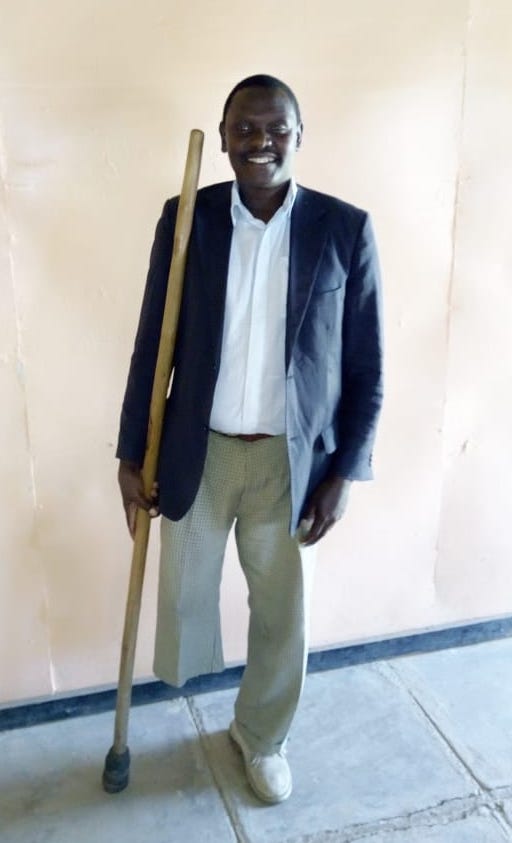
This is a Blog Post written by Sauve Fellow Esmael Omar. Esmael is working on a project funded by the Jeanne Sauvé Foundation to improve the lives of people with disabilities in Kenya.
Today, on the occasion of UN International Day of Zero Tolerance for FGM, I am writing this blog to explore, through an interview format, the perspectives of a person with disability regarding FGM in Kenya. I had the chance to interview Paul Ole Sopia, a Kenyan man living with a disability.
Esmael: Tell me more about what you do as person with disability?
Paul: My name is Paul Ole Sopia and I run an organization based in Narok County, Kenya called Narok Integrated Disability Project (NAIDP). The organization aims to lobby and to advocate for disability rights. We support persons with disabilities to access social and medical services provided by the government. In addition, the organization works with parents and families to provide payments for school fees of their children with disabilities as well as assistive devices.
Esmael: How is disability perceived in your community? What are your personal experiences as a person with disability?
Paul: A significant number of people from the Maasai community still perceive persons with disabilities as ‘cursed’ and ‘should not be accepted in the society’. I knew of a situation where a child with disability was locked inside the house and he was not allowed to mingle with the others and his peers. Until now, this is still happening but there has been improvement in terms of people’s awareness about disability.
Personally, my journey as a person with disability has not been easy. I was perceived as cursed and a disgrace. I always felt I did not belong to my family, to my community. I was an outcast. My peers refused to play with me. They never wanted to associate with me. However, through the support of my parents, a pastor, and a few individuals, I pulled through.
Esmael: The project we are doing with the Jeanne Sauve Foundation talks about the link between Disability and FGM. What is your perspective on this? How vulnerable are person with disabilities to FGM?
Paul: Young girls with disabilities in my community are subject to undergo FGM. A lot of them become more vulnerable to the practice due to their impairments. For example, a young girl who cannot hear may undergo the cut without her consent due to communication barrier between her and her family as well as community. In addition, because of the fact that these young girls with disabilities and their families are not aware of their rights, they become more vulnerable to FGM. There is no support system in my community for young girls with disabilities who underwent the cut.
Esmael: What do you think should be done to engage persons with disabilities in the fight against FGM?
Persons with disabilities, especially women and girls with disabilities, should first of all be trained to know and to demand for their rights. Knowledge is power. We need to empower persons with disabilities to become advocates ourselves in the fight against FGM in our communities. It is important to involve the bigger community as well, bringing in stakeholders to fight the harmful cultural practice.
